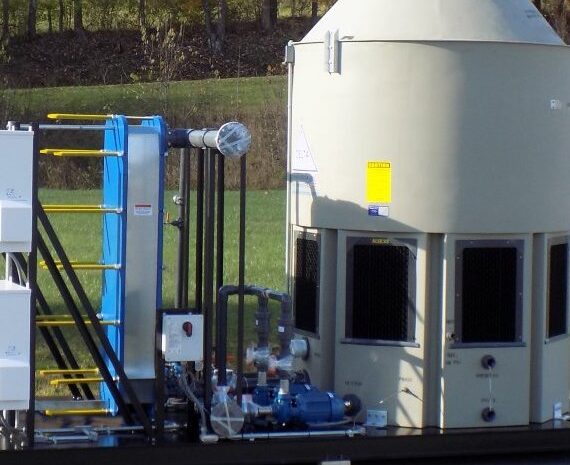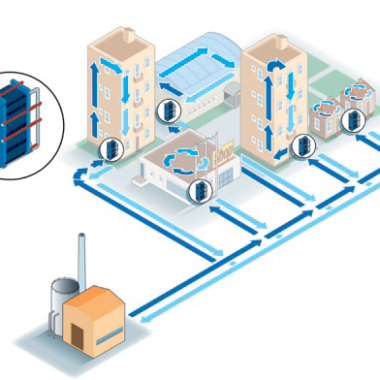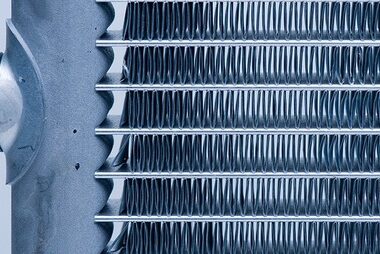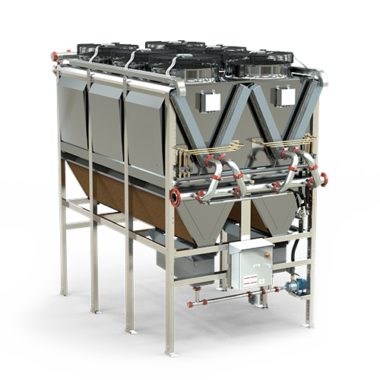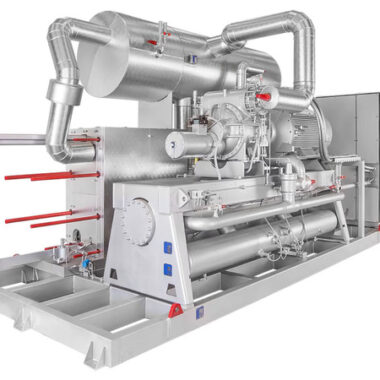Closed-Loop Cooling Solutions
Introduction
Closed-loop cooling solutions have become a critical component in industrial and commercial cooling systems, offering efficient thermal management without excessive water consumption. Unlike open-loop systems, which constantly intake and discharge water, closed-loop cooling systems circulate the same coolant within a sealed loop, eliminating water loss and protecting equipment from external contamination. This approach ensures stable and efficient cooling, making it ideal for applications that require precise temperature control, such as power plants, HVAC systems, data centers, medical equipment, and manufacturing industries. One of the key benefits of closed-loop cooling is its ability to prevent scale buildup, corrosion, and biological growth, which are common issues in open-loop systems. By maintaining a clean and uncontaminated cooling circuit, these systems reduce maintenance requirements and prolong equipment lifespan. Additionally, closed-loop cooling solutions contribute to environmental sustainability by minimizing water usage and reducing chemical treatment needs.
Key Features of Closed-Loop Cooling Solutions
Minimal Water Consumption
Closed-loop cooling systems significantly reduce water usage by continuously recirculating the coolant. Unlike open-loop systems that rely on a constant intake and discharge of water, closed-loop solutions retain and reuse the same liquid, only requiring occasional top-ups due to evaporation or leaks. This makes them ideal for regions facing water scarcity and industries aiming to cut down on water consumption.
Contamination-Free Operation
Since the cooling fluid remains enclosed within a sealed system, it is protected from external contaminants such as dust, dirt, biological growth (such as algae or bacteria), and airborne pollutants. This prevents fouling, scaling, and corrosion within the system, which helps maintain high efficiency and reduces the need for frequent chemical treatment. A cleaner system also leads to better heat transfer performance and longer equipment life.
Consistent Cooling Performance
Closed-loop cooling systems provide stable and predictable cooling since they are not affected by external water source fluctuations, such as seasonal changes, water shortages, or variations in water temperature and quality. The recirculating coolant maintains a steady temperature, ensuring optimal performance for sensitive applications, such as electronics cooling, medical equipment, and high-precision manufacturing processes.
Reduced Maintenance Requirements
With no exposure to external contaminants, closed-loop systems experience less wear and tear, requiring fewer maintenance interventions. The absence of scaling and biological growth eliminates the need for frequent chemical treatments and deep cleaning. Additionally, many modern closed-loop systems are equipped with self-monitoring technologies that detect leaks, blockages, or temperature irregularities, allowing for predictive maintenance and preventing costly system failures.
High Thermal Efficiency
Closed-loop cooling solutions are designed to maximize heat dissipation using advanced heat exchangers, radiators, and cooling coils. These systems efficiently transfer heat away from critical components while minimizing energy consumption. Many closed-loop cooling solutions also incorporate variable-speed pumps, smart sensors, and automated controls to optimize performance based on real-time cooling demand, further enhancing their energy efficiency.
Versatile Applications
Closed-loop cooling systems can be used in a wide range of industries and applications, including:
- Power Plants: Cooling of turbines, generators, and transformers.
- HVAC Systems: Providing efficient cooling for air conditioning and refrigeration units.
- Medical Equipment: Used in MRI machines, CT scanners, and laboratory cooling.
- Metal Processing: Cooling of furnaces, welding machines, and cutting systems.
- Data Centers: Preventing overheating of servers and IT equipment.
- Chemical & Pharmaceutical Industry: Cooling of reactors, distillation units, and laboratory equipment.
Advantages of Closed-Loop Cooling Systems
Longer Equipment Lifespan
By preventing contamination, corrosion, and scale buildup, closed-loop cooling systems protect critical industrial equipment from damage. This prolongs the operational life of machinery and reduces downtime caused by maintenance or component failures.
Energy Efficiency
Closed-loop systems optimize energy usage by maintaining precise temperature control and reducing unnecessary cooling cycles. The integration of high-efficiency heat exchangers and automated controls further enhances energy savings, leading to lower operating costs.
Eco-Friendly & Sustainable
With reduced water consumption and minimal reliance on chemical treatments, closed-loop cooling systems support sustainable operations. By limiting water wastage and pollution, industries using these systems contribute to environmental conservation efforts.
No Need for Chemical Treatment
Open-loop cooling systems require chemical additives to prevent biological growth, corrosion, and scaling. Closed-loop systems, however, are self-contained and require fewer or no chemical treatments, reducing both operational costs and environmental impact.
Adaptability & Integration
Closed-loop cooling systems can be integrated with various cooling technologies, including dry coolers, evaporative cooling towers, and heat exchangers. They can be customized to suit different industrial requirements, providing flexible solutions for a range of cooling needs.
Innovations in Closed-Loop Cooling
Smart Cooling Systems
With advancements in IoT and sensor technology, modern closed-loop cooling systems are now equipped with smart monitoring and automated control systems. These features enable real-time tracking of coolant temperature, pressure, and flow rate, ensuring precise cooling performance and early detection of system issues.
Advanced Coolant Fluids
The development of high-performance coolants, including nanofluids with enhanced thermal conductivity, is revolutionizing closed-loop cooling. These fluids improve heat transfer efficiency, reduce pump workload, and enhance overall system performance.
Hybrid Cooling Designs
Innovative hybrid cooling systems combine air cooling and liquid cooling technologies to optimize efficiency. These systems use air cooling when temperatures are moderate and switch to liquid cooling during peak loads, reducing energy consumption and operational costs.
Modular Cooling Units
Industries requiring scalable cooling solutions are adopting modular closed-loop cooling units. These units can be expanded or adjusted based on changing cooling demands, allowing for a cost-effective and flexible cooling infrastructure.
Renewable Energy Integration
To enhance energy efficiency and sustainability, some closed-loop cooling systems are now integrated with renewable energy sources such as solar panels. This reduces dependency on conventional power sources and lowers carbon footprints.
Future Trends in Closed-Loop Cooling Solutions
AI-Based Cooling Optimization
Artificial intelligence is playing a crucial role in optimizing closed-loop cooling systems. AI-powered control systems analyze real-time data and adjust cooling parameters automatically, reducing energy consumption and preventing system inefficiencies.
Carbon-Neutral Cooling Systems
With the increasing focus on sustainability, researchers are developing closed-loop cooling solutions that produce zero carbon emissions. These systems utilize eco-friendly coolants and energy-efficient components to minimize environmental impact.
Cryogenic Cooling Integration
Advanced cooling technologies are incorporating cryogenic solutions for ultra-low-temperature applications. This is particularly useful for high-performance computing, quantum computing, and superconducting applications that require extreme cooling.
Self-Cleaning Technologies
Future closed-loop cooling systems will feature self-cleaning mechanisms that prevent scale buildup and contamination. Automatic filtration systems and self-purging technologies will improve efficiency and reduce maintenance requirements.
Heat Recovery Systems
To maximize energy efficiency, future closed-loop cooling systems will incorporate heat recovery mechanisms that utilize excess heat for secondary applications such as space heating, water heating, or power generation.
Conclusion
Closed-loop cooling solutions have revolutionized the way industries manage heat dissipation, offering a more efficient, cost-effective, and environmentally friendly alternative to traditional open-loop systems. By eliminating water wastage, reducing maintenance, and providing consistent cooling performance, these systems have become essential in various sectors, from manufacturing and power generation to data centers and medical equipment cooling. The ongoing advancements in smart technology, AI-based cooling optimization, and the development of high-performance coolant fluids are driving the future of closed-loop cooling systems. The integration of hybrid cooling methods, cryogenic solutions, and heat recovery mechanisms further enhances their potential, making them even more sustainable and efficient.


